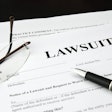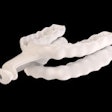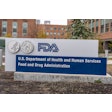
A well-known Massachusetts dentist who was disciplined for unauthorized use of Botox and inadequate sterilization procedures is a compelling reminder that dental practitioners need to keep abreast of state and federal regulatory changes that affect their practices.
The problems for Helaine Smith, DMD, a cosmetic dentist, lecturer, and author who has been practicing for 20 years, began after the Boston Globe published a story in March about the surging demand for her Botox treatments, which she told the paper she had been offering for about a year.
The story also caught the attention of the state's Board of Registration in Dentistry, which launched an investigation. Under the board's rules, only certified oral and maxillofacial surgeons who have been trained in the use of Botox and dermal fillers can use the injections for the treatment of "disease, disfigurement, or dysfunction."
After investigators examined her offices in Boston and Dedham, they also cited Dr. Smith for other violations, including failure to conduct weekly tests of sterilization equipment, failure to correctly store dental instruments, failure to provide necessary emergency medical equipment, and failure to maintain proper records.
In addition, Dr. Smith improperly prescribed controlled substances, kept inadequate records of patients receiving them, and administered sedation without a permit, according to records obtained by the Globe that were detailed in a recent story.
Dr. Smith has agreed to surrender her license for six months, a prohibition that expires in October. She also signed an agreement in which she acknowledged advertising for Botox treatments and administering them in her offices.
Punishment too harsh?
But in an interview with DrBicuspid.com, Dr. Smith said she never used Botox and that she was misunderstood in the first Globe story. She has now completed a two-day training course to use the botulinum toxin.
Dr. Smith was the first dentist punished under a board policy enacted in January 2008 prohibiting the use of Botox by general dentists. She has closed both of her offices and has spent more than $250,000 in legal fees, mandated training courses, and new equipment.
The dental board's rules have grown from eight pages of regulations to 94 pages during the last year, according to Dr. Smith, and she was unaware of many of the changes, she said.
“Botox and dermal fillers are comparatively much less invasive procedures.
— Louis Malcmacher, DDS
Overall, she thinks the board's discipline was "excessive."
"It was good to become compliant, and it showed me some areas that needed improvement," she said. "I'm always willing to learn and make things better, but the harsh punishment is something I'm still trying to understand."
Board members declined to comment on the case.
Dr. Smith, who battled breast cancer last year, plans to resume practicing cosmetic dentistry once her license is reinstated.
"I'm not married, have no kids, and my patients loved me," she said. "My practice was my whole life, and I loved it and worked so hard for 20 years."
She and many other practitioners take issue with restrictions that forbid general dentists from using Botox.
Louis Malcmacher, DDS, a practicing general dentist, lecturer, author, and current president of the American Academy of Facial Esthetics who teaches courses on how to inject Botox, believes that dentists are among the best qualified healthcare professionals to administer Botox.
"Certainly, dentists are as qualified as any other healthcare professional and in some aspects more qualified simply because they are always working in the face much more so than so many others, and they give the most injections of any healthcare professional," Dr. Malcmacher told DrBicuspid.com.
Another turf war
Other specialists are just trying to protect what can be a very lucrative business, Dr. Malcmacher added.
"This is nothing more than a turf war," he said. "Plastic surgeons and dermatologists don't just want to keep dentists out, they want to keep every other physician -- including ob/gyns, ophthalmologists, and registered nurses -- from giving Botox as well."
Dentists enjoy the lowest rates for malpractice insurance, he added. "If you look at healthcare professionals, overall, dentists have the best safety record," he said.
But Dr. Malcmacher agrees that dentists need proper training to use Botox and dermal fillers. "These are pharmaceuticals, and it is crucial that dentists get live patient, hands-on training before using these materials," he said.
All states require at least 16 hours of training to use Botox, and insurance companies won't provide coverage without it, Dr. Malcmacher noted.
"Dentists understand lip lines and lip volume, and overall have extensive aesthetic knowledge when it comes to the oral and maxillofacial region," he explained. "If they can do veneers and extractions, Botox and dermal fillers are comparatively much less invasive procedures."
Dentists just have to learn the anatomy, physiology, and pharmacology and should know how to deal with adverse reactions and how to avoid complications, Dr. Malcmacher added.



















